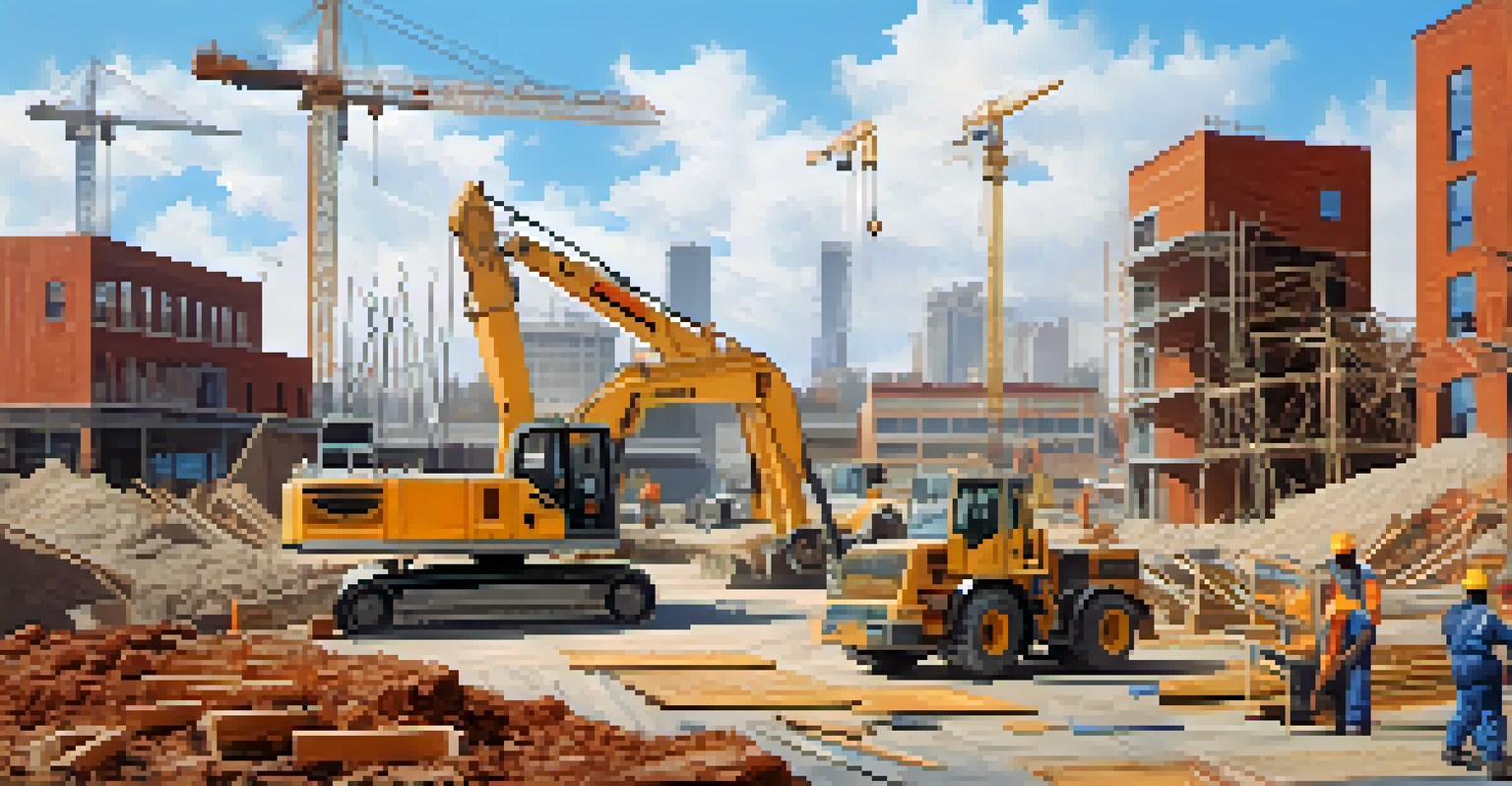The Effect of Natural Disasters on Property Valuation

Understanding Property Valuation Basics
Property valuation is the process of determining the economic value of a real estate asset. It takes into account various factors such as location, condition, and market trends. Essentially, it helps buyers, sellers, and investors understand what a property is worth in the current market.
In the middle of difficulty lies opportunity.
In simple terms, think of property valuation like assessing the worth of a beloved old car. Its value isn't just about its age, but also how well it's been maintained, its rarity, and the current demand for similar vehicles.
This foundational understanding is crucial when discussing how natural disasters can impact property values. When a disaster strikes, it can dramatically alter the factors considered in valuation.
The Immediate Impact of Natural Disasters
When a natural disaster, such as a hurricane or earthquake, occurs, the immediate impact on property values can be quite stark. Homes that are damaged or destroyed often see a swift drop in value, as potential buyers become wary of the risks associated with buying in that area.

For instance, after a major flood, properties in affected neighborhoods may experience a significant decline in market interest. This is similar to how a popular restaurant may lose customers if it suddenly received bad reviews.
Disasters Impact Property Values
Natural disasters can lead to immediate drops in property values due to buyer caution and decreased market interest.
This immediate reaction can create a ripple effect, influencing not just the affected properties but also the overall market dynamics of the surrounding area.
Long-Term Effects on Property Values
While the initial impact of a natural disaster is often negative, the long-term effects can vary widely. Some areas may never fully recover, leading to prolonged decreases in property values. Others, however, can rebound, especially if significant investments in infrastructure and safety measures are put in place.
The best way to predict the future is to create it.
Consider a neighborhood that has been rebuilt with better flood defenses after a hurricane. Over time, property values could stabilize or even increase as buyers see the area as safer and more desirable.
Therefore, understanding the long-term outlook is vital for homeowners and investors alike, as the resilience of a community plays a crucial role in property valuation.
Insurance and Property Valuation
Insurance plays a critical role in how natural disasters affect property valuation. Properties with adequate insurance coverage may retain their value better than those without, as owners can rebuild or repair without incurring massive financial losses.
For example, a homeowner with flood insurance may be able to quickly restore their property after a flood, keeping their property value intact. This is akin to having a safety net that protects you during turbulent times.
Long-Term Recovery Varies
The long-term effects on property values can differ, with some areas rebounding through infrastructure improvements while others may suffer prolonged declines.
Conversely, properties lacking insurance could see a steeper decline in value, as potential buyers recognize the risk of future losses without a safety net.
Market Sentiment and Buyer Behavior
Natural disasters can significantly shift market sentiment and buyer behavior. After a disaster, buyers may become more cautious, leading to decreased demand in affected areas. This shift can create a downward spiral in property values as sellers find it harder to sell at previous levels.
Imagine a once-thriving neighborhood where buyers are now hesitant due to recent events. This reluctance mirrors how consumer confidence can plummet after a financial crisis, affecting all sectors.
As a result, understanding market sentiment is crucial for real estate professionals and homeowners alike, as it directly influences property valuation.
Government Response and Recovery Efforts
The response of local and federal governments plays a significant role in property valuation post-disaster. Quick and effective recovery efforts can help stabilize affected markets, while delays or inadequate responses can exacerbate declines in property values.
For instance, government investment in rebuilding infrastructure and providing financial assistance can boost buyer confidence, similar to how a well-timed marketing campaign can revive a struggling business.
Insurance Affects Valuation
Adequate insurance coverage can help property owners maintain their value post-disaster, while those without it are at greater risk of significant losses.
Thus, the effectiveness of recovery efforts is a key factor that can either mitigate or amplify the impact of a natural disaster on property values.
Preparing for Future Disasters
Preparing for future natural disasters can help property owners protect their investments. This includes making structural improvements, investing in insurance, and staying informed about local disaster response plans.
Think of it like preparing for a storm by securing your home; taking proactive steps can prevent potential losses and maintain property value. Just as you'd stock up on supplies before a hurricane, preparing your property can safeguard against valuation drops.

In the long run, a proactive approach can enhance resilience and contribute to stabilizing property values, even in the face of future challenges.